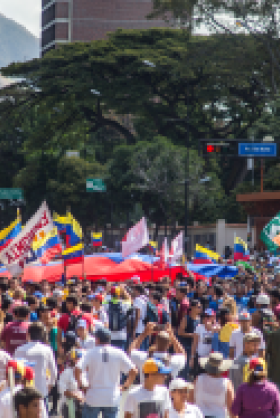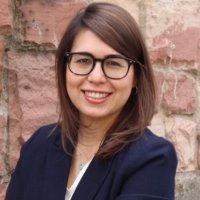Lost in Fragmentation? The Recurrent Dilemmas of the Venezuelan Opposition and What to Do Next


In a new report published by the Latin American Program, scholar Maryhen Jiménez of Oxford University explores dilemmas faced by Venezuela’s political opposition against the backdrop of common challenges for democratic movements against authoritarianism.
Jiménez argues that opposition movements must constantly evaluate whether to participate or boycott elections in light of unfair and restrictive conditions; how to organize and mobilize constituents in a hostile and often dangerous environment; and how to balance international support for a democratizing cause with the often delicate and complex dynamics on the ground, all while facing harassment, exile, or jail.
Jiménez views coordination and strategic coherence as crucial, especially in the face of high repression. The Venezuelan opposition did coordinate through the umbrella Democratic Unity Roundtable (MUD), challenging chavismo effectively at the polls in 2015 and winning control of the National Assembly. The opposition alliance succeeded in part due to clear mechanisms for decision making, which helped mitigate internal conflicts, provide structure and programmatic ideas, and signal coherence and viability to the population. Jiménez argues that, following the collapse of MUD, and faced with increased regime repression, internal disagreements, and misinterpretations of the 2015 electoral success, fragmentation has been a key challenge for Venezuela’s main opposition groups.
Author


Latin America Program
The Wilson Center’s prestigious Latin America Program provides non-partisan expertise to a broad community of decision makers in the United States and Latin America on critical policy issues facing the Hemisphere. The Program provides insightful and actionable research for policymakers, private sector leaders, journalists, and public intellectuals in the United States and Latin America. To bridge the gap between scholarship and policy action, it fosters new inquiry, sponsors high-level public and private meetings among multiple stakeholders, and explores policy options to improve outcomes for citizens throughout the Americas. Drawing on the Wilson Center’s strength as the nation’s key non-partisan policy forum, the Program serves as a trusted source of analysis and a vital point of contact between the worlds of scholarship and action. Read more

Explore More
Browse Insights & Analysis
Greenland’s New Governing Coalition Signals Consensus

Myanmar’s Junta and the 2026 Elections: A Fig Leaf for Legitimacy?

